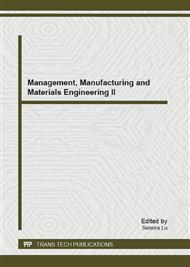p.406
p.415
p.420
p.426
p.432
p.437
p.449
p.454
p.459
Irrational Bidders, the First-Price Sealed Auction and Trembling-Hand Perfect Equilibrium
Abstract:
Though the auction existed for a long time, the research on the auction theory has been started formally since 1961. One of the prerequisites in auction theory is that all bidders are rational. At present the auction theory hasn’t involved irrational bidders. The paper first introduced the irrational factors into auction theory and analyzed what is the equilibrium of the first-price sealed auction when the values of bidders are uniformly distributed on [0, 1] and some bidders are irrational. This paper also pointed this equilibrium is a trembling-hand perfect equilibrium and discussed the revenue of the seller in this case contrasting the revenue of the seller when bidders are rational. In the end this paper put forward some question on the future research.
Info:
Periodical:
Pages:
432-436
DOI:
Citation:
Online since:
December 2012
Authors:
Price:
Сopyright:
© 2013 Trans Tech Publications Ltd. All Rights Reserved
Share:
Citation:


